#Pixoplanet
Explore tagged Tumblr posts
Text


🐼 Every day should be Endangered Species Day. Please help protect our planet’s endangered species and their habitats. ☮️ Peace… Jamiese of Pixoplanet
3 notes
·
View notes
Text
🤎 The Fascinating Origin and History of Juneteenth
The Roots of Juneteenth
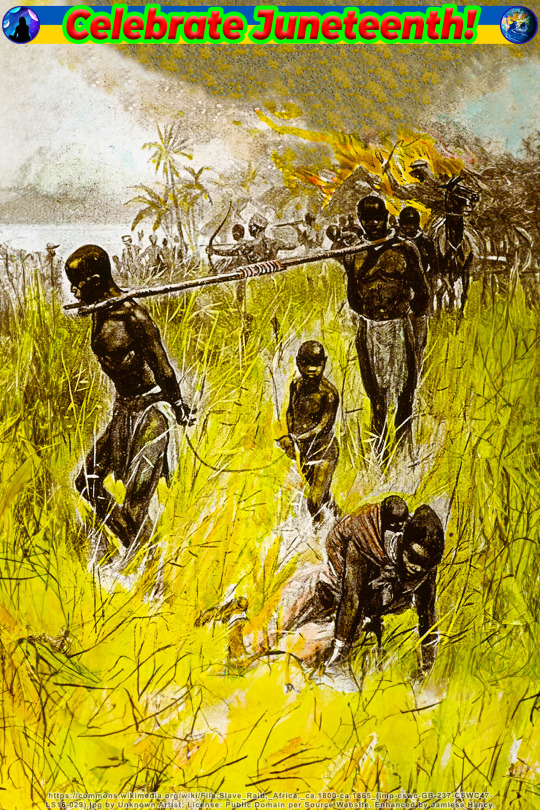
😭 Slavery began with awful slave raids in Africa. [1]
The origin of Juneteenth, a day of profound significance, traces back to June 19, 1865. It was on that day that Union General Gordon Granger arrived in Galveston, Texas, bringing with him the momentous news that the Civil War had ended and that all enslaved people in America were now free, as declared by President Abraham Lincoln's Emancipation Proclamation. The last remaining enslaved African-Americans were finally liberated!
This historic event occurred more than two years after President Abraham Lincoln's Emancipation Proclamation, highlighting the delays and struggles Civil-War-era African-Americans had to overcome to finally gain their freedom. The moment is commemorated annually as Juneteenth, a term derived, of course, by combining "June" and "nineteenth," and has evolved into a powerful symbol of liberation, resilience, and America's continuing journey toward racial equality.
By exploring the origins and historical context of Juneteenth, we gain valuable insights into the enduring spirit of a people who fought for their rightful freedom and the broader narrative of American history.
The Historical Context of Juneteenth
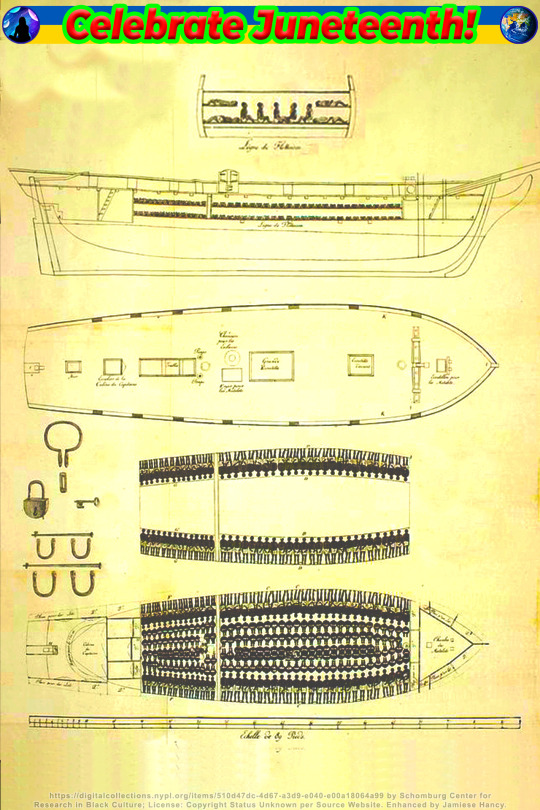
😭 19th Century Vigilante Slave Ship Packing Chart [2]
The historical context of Juneteenth is rooted in the grim reality of the institution of slavery in America, an institution that forcibly brought millions of Africans to American shores and subjugated them to inhumane conditions for centuries.
By the mid-19th century, the United States was sharply divided over the issue of slavery, leading to the eruption of the Civil War in 1861. The Confederate southern states, which relied heavily upon slave labor, fought to preserve their way of life against the northern states, who were determined to end slavery.
In the midst of this brutal conflict, on January 1, 1863, President Abraham Lincoln issued the Emancipation Proclamation, declaring freedom for enslaved people in the Confederate states. However, due to ongoing warfare and the slow spread of information, many enslaved individuals remained unaware of their emancipation.
This delay persisted until Union forces made significant advances into Confederate territory, culminating in General Gordon Granger's announcement in Galveston, Texas, on June 19, 1865.
This pivotal moment not only marked the end of slavery in Texas, but also symbolized a new beginning for the nation, which was striving to rebuild and redefine itself in the aftermath of civil war and slavery.
The Emancipation Proclamation
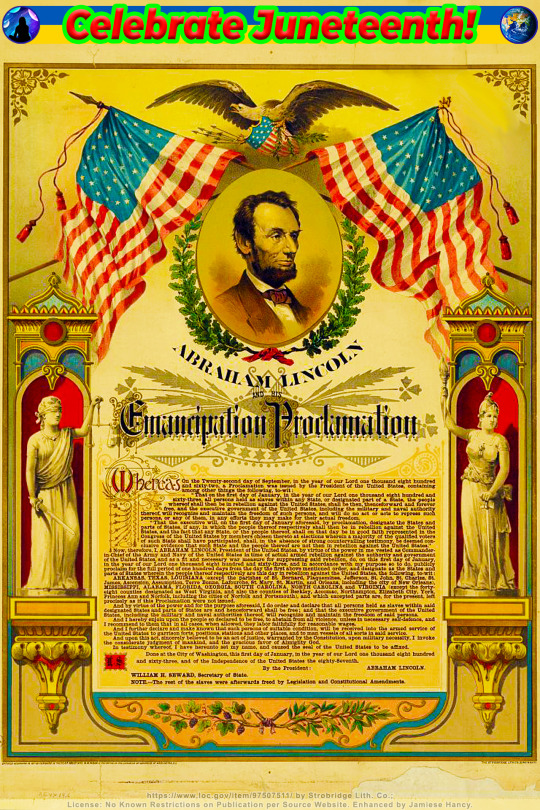
🎩 Abraham Lincoln's Emancipation Proclamation [3]
On January 1, 1863, President Abraham Lincoln issued the Emancipation Proclamation, a landmark executive order that declared freedom for all enslaved people in Confederate-held territory. This bold proclamation shifted the purpose of the Civil War, framing it as a fight not only to preserve the Union, but also to abolish slavery.
However, the immediate impact of the Emancipation Proclamation was limited; it couldn't be enforced in areas still under Confederate control. Nevertheless, the issuance of this proclamation was a crucial step toward ending slavery, as it allowed African-Americans to join the Union Army, bolstering its forces with approximately 200,000 Black soldiers and sailors.
Furthermore, the Emancipation Proclamation set a moral precedent and laid the foundation for the eventual passage of the 13th Amendment, which would completely abolish slavery nationwide.
The Announcement in Texas
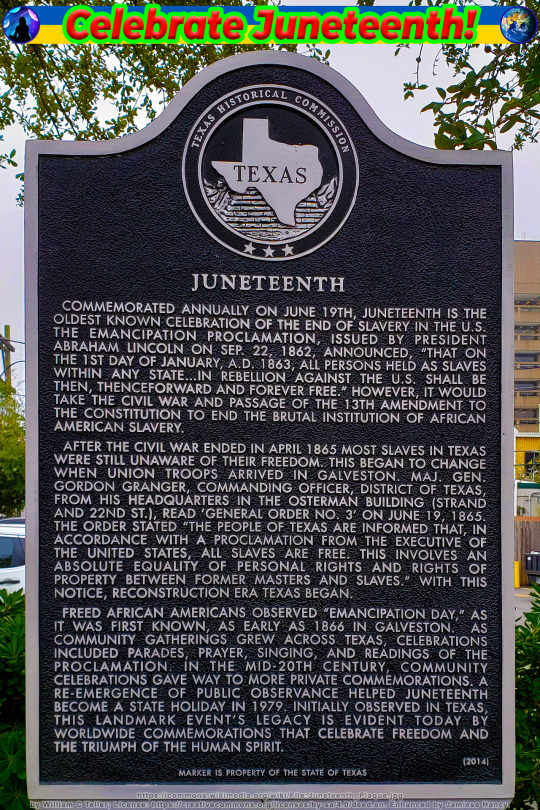
📢 Gen. Gordon Granger's Juneteenth Announcement [4]
The announcement in Texas stands as the cornerstone of Juneteenth's significance. General Granger's issuance of General Order No. 3 publicly proclaimed: "The people of Texas are informed that, in accordance with a proclamation from the Executive of the United States, all slaves are free."
This announcement directly impacted approximately 250,000 enslaved African-Americans in Texas, who had remained in bondage long after their legal emancipation due to the slow dissemination of information and the resistance of enslavers. The news was met with a mixture of astonishment, joy, and relief among the newly freed individuals, while slaveholders faced the abrupt end of an era.
The significance of this day extends beyond the immediate freedom it brought; it marked the beginning of a new chapter for African-Americans, who began to forge their paths as free citizens.
Early Celebrations of Juneteenth
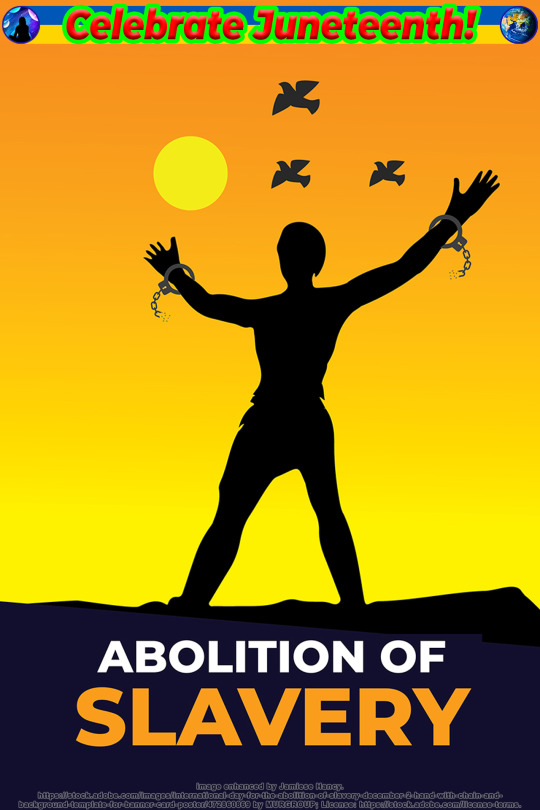
⛓️ On Juneteenth 1865, chains were broken for all! [5]
Early celebrations of Juneteenth, beginning in 1866, were marked by an overwhelming sense of joy, community, and reflection among newly freed African-Americans. The first Juneteenth events were spontaneous gatherings where people rejoiced in their newfound freedom, often held in rural areas or near rivers where they could celebrate without interference.
These early celebrations featured activities such as prayer meetings, singing spirituals, barbecues, and feasting on traditional foods. Participants dressed in their finest clothing – often discarded by former owners – to symbolize their emancipation and newfound dignity.
Emphasis was also placed on education and self-improvement, with leaders delivering speeches about the importance of literacy and political participation.
Despite facing numerous obstacles, including laws that restricted their assembly and ongoing racial discrimination, African-Americans persevered in commemorating Juneteenth annually. These early celebrations were not only acts of remembrance but also declarations of their resilience and enduring hope for a future of equality and justice.
Juneteenth in the 20th Century
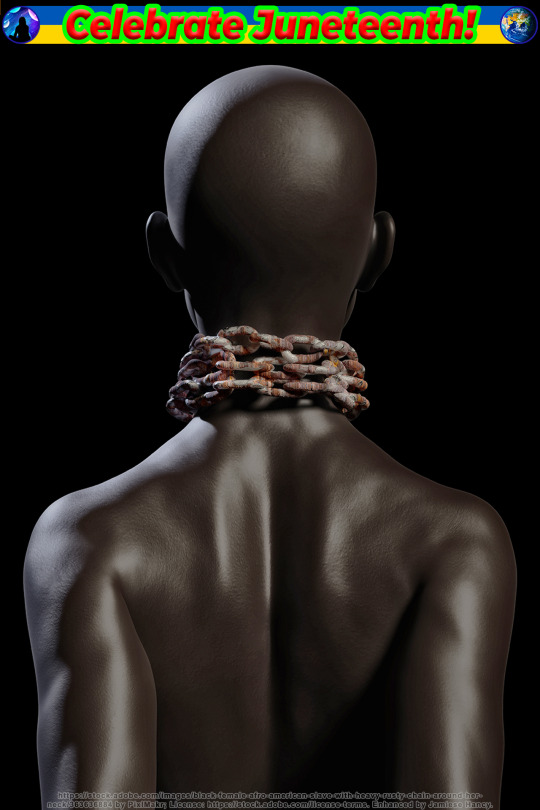
⛓️ On Juneteenth 1865, dignity was restored to all! [6]
Juneteenth in the 20th century experienced periods of both decline and resurgence, reflecting the broader struggles and triumphs of African-American communities.
During the early 1900s, as the Great Migration saw many African-Americans moving from the rural South to urban areas across the country, the nature of Juneteenth celebrations began to change. Urbanization and the pressing need for economic survival often meant less time for public celebrations, and the observance of Juneteenth declined in many areas.
However, the civil rights movements of the 1950s and 1960s brought a renewed focus on African-American history and cultural pride, revitalizing Juneteenth as a symbol of freedom and resistance. Civil rights activists used Juneteenth to highlight the ongoing struggles against segregation and inequality, linking the historical significance of emancipation to contemporary fights for justice.
By the late 20th century, the momentum grew for official recognition, with Texas becoming the first state to establish Juneteenth as a state holiday in 1980. This period also saw the emergence of larger, more organized celebrations featuring parades, festivals, and educational events, reflecting a broader acknowledgment of Juneteenth's importance in the American narrative.
Modern-Day Juneteenth
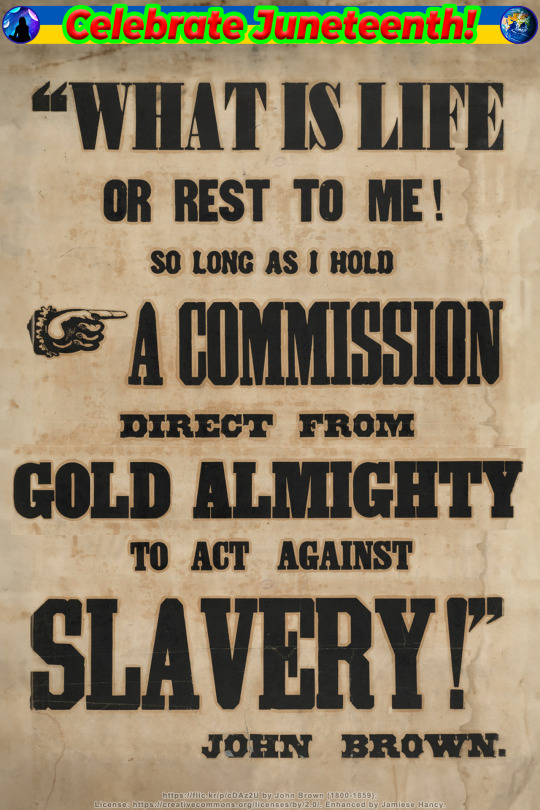
⚰️ Many Americans died fighting for the cause. [7]
Modern-day Juneteenth celebrations continue to evolve, serving as both a commemoration of the past and a call to action for the future.
In recent years, Juneteenth has experienced a resurgence in popularity and significance, fueled by a growing awareness of racial injustices and a renewed commitment to confronting systemic racism.
Across the United States, our neighborhoods come together on June 19th to honor the legacy of emancipation through a variety of activities, including parades, festivals, picnics, educational workshops, and historical reenactments. These activities not only highlight the cultural richness and resilience of the African-American community but also provide opportunities for dialogue, reflection, and collective healing.
Additionally, the official recognition of Juneteenth as a federal holiday in 2021 marked a significant milestone in acknowledging the importance of this day in American history. As Juneteenth continues to gain momentum, it serves as a powerful reminder of the ongoing struggle for equality and justice, inspiring individuals and communities to work toward a more inclusive and equitable future for all.
The Importance of Juneteenth Today
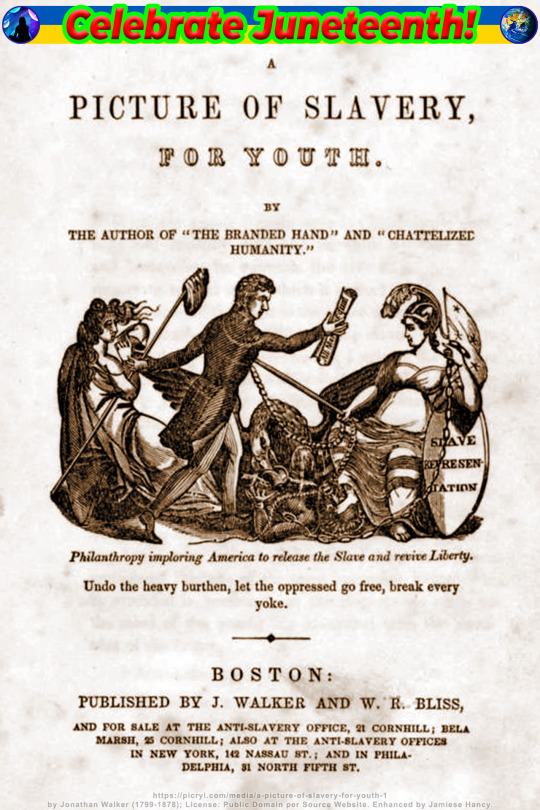
⛓️ Title Page from an 1840's Anti-slavery Book [8]
The importance of Juneteenth today cannot be overstated, as it serves as a vital reminder of the ongoing struggle for racial equality and justice in America. In a time when systemic racism and inequality continue to impact communities of color, Juneteenth provides an opportunity for reflection, education, and action.
By commemorating the end of slavery and celebrating the resilience and strength of African-Americans, Juneteenth fosters a deeper understanding of the complexities of American history and the enduring legacy of oppression.
Moreover, Juneteenth serves as a unifying force, bringing people of all backgrounds together to acknowledge the injustices of the past and commit to building a more inclusive and equitable society for future generations.
As Juneteenth gains wider recognition and celebration, its importance as a day of remembrance, reflection, and activism only continues to grow, reinforcing its significance in the ongoing fight for freedom and equality.
Conclusion: Celebrating the Spirit of Juneteenth

⚰️ Many children died before freedom was secured. [9]
The historical significance and evolution of Juneteenth encapsulates a journey of resilience, resistance, and hope for freedom. Originating from the announcement of emancipation in Texas on June 19, 1865, Juneteenth has evolved into a nationally recognized day commemorating the end of slavery in the United States.
From its early celebrations characterized by spontaneous gatherings of newly-freed African-Americans to its resurgence in the 20th century as a symbol of civil rights and cultural pride, Juneteenth has endured as a testament to the ongoing struggle for racial equality. Its official recognition as a federal holiday in 2021 underscores its profound importance in American history and its role in fostering dialogue, reflection, and activism against systemic racism.
In today's world, where systemic racism continues to plague our society, Juneteenth provides a crucial opportunity for education, reflection, and action. As we honor Juneteenth's historical significance and celebrate its evolution, we also acknowledge the sacrifices of those who fought for freedom and renew our commitment to creating a more just and equitable society for all.
As we reflect upon the importance of Juneteenth in contemporary society, it becomes evident that this day holds profound significance beyond its historical roots. Juneteenth serves as a poignant reminder of the resilience and determination of African-Americans in the face of oppression, and it underscores the ongoing struggle for racial justice and equality.
Juneteenth reminds us that the fight for freedom and justice is far from over and encourages us to stand together in solidarity as we strive to build a society where every individual is valued and respected. As we celebrate Juneteenth each year, let us recommit ourselves to the ongoing work of dismantling systemic oppression and fostering a world where the principles of freedom, equality, and justice ring true for all.
As we conclude our exploration of Juneteenth, let's all of us join in the celebration and commemoration of this significant day. Participate in Juneteenth events in your community, whether it's attending a parade, joining a festival, or engaging in educational workshops.
Take the time to learn more about the history of Juneteenth and its profound impact on American society. Share this knowledge with others, whether it's through conversations with friends and family, social media posts, or community outreach initiatives.
By actively participating in Juneteenth celebrations and educating others about its history, we not only honor the struggles and achievements of those who came before us and fought for freedom, but we also contribute to America's ongoing journey toward a more just and equitable society. Let's embrace Juneteenth as a time for reflection, remembrance, and action, and work together to ensure that its significance is recognized and celebrated for generations to come. ☮️ Peace... Jamiese
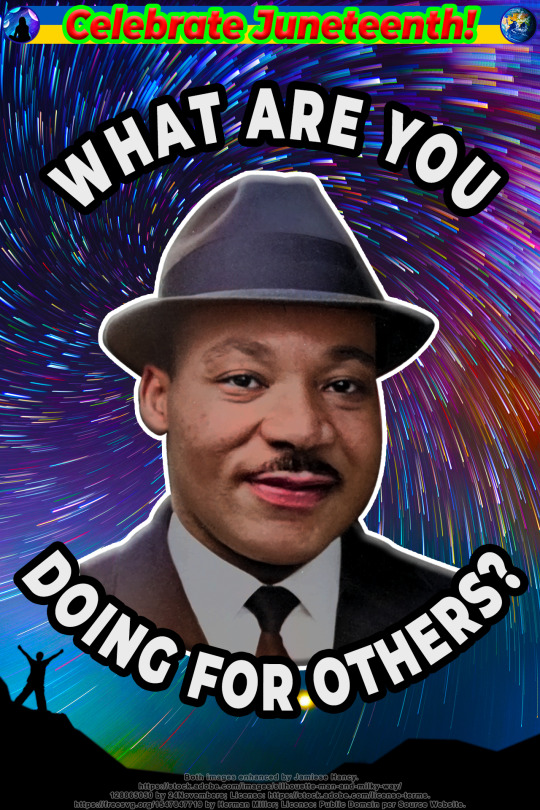
🤎 Celebrate Juneteenth, but the effort goes on. [10]
📚 Text Sources:
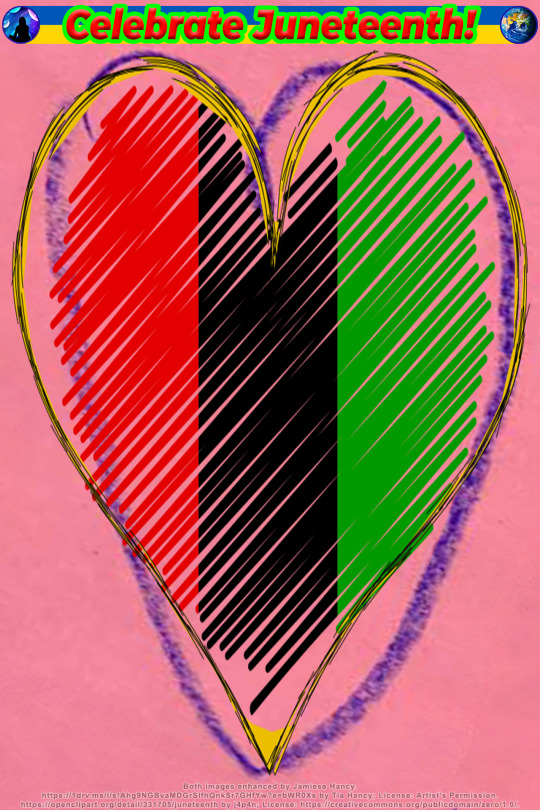
❤️ Juneteenth – Proof That Love Can Conquer All! [11]
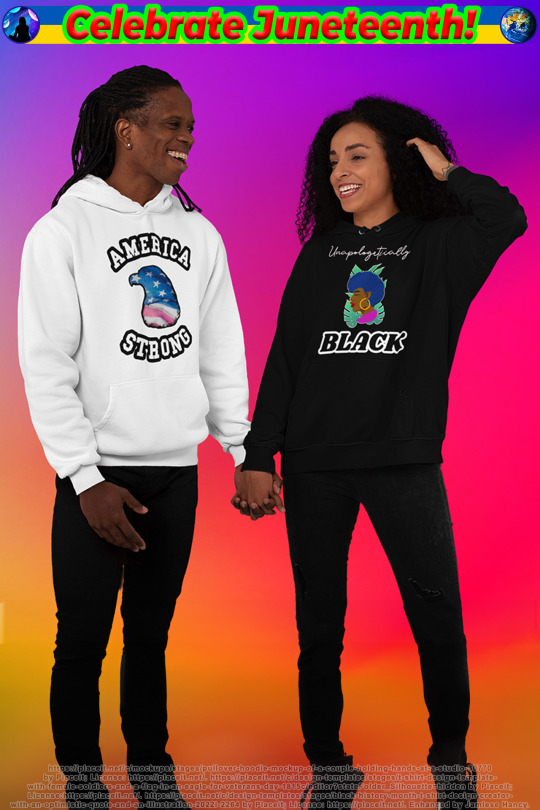
👕 Stylish Apparel for a Juneteenth Celebration [12]
📷 Image Sources:
1.��https://commons.wikimedia.org/wiki/File:Slave_Raid,_Africa,_ca.1800-ca.1865_(imp-cswc-GB-237-CSWC47-LS16-029).jpg by Unknown Artist; License: Public Domain per Source Website. Enhanced by Jamiese Hancy.
2. https://digitalcollections.nypl.org/items/510d47dc-4d67-a3d9-e040-e00a18064a99 by Schomburg Center for Research in Black Culture; License: Copyright Status Unknown per Source Website. Enhanced by Jamiese Hancy.
3. https://www.loc.gov/item/97507511/ by Strobridge Lith. Co.; License: No Known Restrictions on Publication per Source Website. Enhanced by Jamiese Hancy.
4. https://commons.wikimedia.org/wiki/File:Juneteenth_Plaque.jpg by William C Teller; License: https://creativecommons.org/licenses/by-sa/4.0/deed.en. Enhanced by Jamiese Hancy.
5. https://stock.adobe.com/images/international-day-for-the-abolition-of-slavery-december-2-hand-with-chain-and-background-template-for-banner-card-poster/472860869 by MURGROUP; License: https://stock.adobe.com/license-terms. Enhanced by Jamiese Hancy.
6. https://stock.adobe.com/images/black-female-afro-american-slave-with-heavy-rusty-chain-around-her-neck/363636884 by PixlMakr; License: https://stock.adobe.com/license-terms. Enhanced by Jamiese Hancy.
7. https://flic.kr/p/cDAz2U by John Brown (1800-1859); License: https://creativecommons.org/licenses/by/2.0/. Enhanced by Jamiese Hancy.
8. https://picryl.com/media/a-picture-of-slavery-for-youth-1 by Jonathan Walker (1799-1878); License: Public Domain per Source Website. Enhanced by Jamiese Hancy.
9. https://www.fanpop.com/clubs/human-rights/images/256995/title/african-children-photo by alyssa-lauren; License: https://www.fanpop.com/terms. Enhanced by Jamiese Hancy.
10. https://freesvg.org/1547847719 by Herman Miller; License: Public Domain per Source Website. Enhanced by Jamiese Hancy. https://stock.adobe.com/images/silhouette-man-and-milky-way/128865050 by 24Novembers; License: https://stock.adobe.com/license-terms. Enhanced by Jamiese Hancy.
11. https://openclipart.org/detail/331705/juneteenth by j4p4n; License: https://creativecommons.org/publicdomain/zero/1.0/. Enhanced by Jamiese Hancy. https://1drv.ms/i/s!Ahg9NGBvaMDGrSIfhQnkSr7GHfYw?e=bWR0Xs by Tia Hancy; License: Artist's Permission. Enhanced by Jamiese Hancy.
12. https://placeit.net/c/mockups/stages/pullover-hoodie-mockup-of-a-couple-holding-hands-at-a-studio-30770 by Placeit; License: https://placeit.net/. Enhanced by Jamiese Hancy. https://placeit.net/c/design-templates/stages/t-shirt-design-template-with-female-soldiers-and-a-flag-in-an-eagle-for-veterans-day-1815c/editor?stateFolder_Silhouette=hidden by Placeit; License: https://placeit.net/. Enhanced by Jamiese Hancy. https://placeit.net/c/design-templates/stages/black-history-month-t-shirt-design-creator-with-an-optimistic-quote-and-an-illustration-2022i-2264 by Placeit; License: https://placeit.net/. Enhanced by Jamiese Hancy.
https://www.bit.ly/history-of-fathers-day
#juneteenth#juneteenth 2025#juneteenth gifts#juneteenth recipes#what day is juneteenth#juneteenth card#when is juneteenth 2025#gift ideas for juneteenth#juneteenth brunch#juneteenth ideas#happy juneteenth#juneteenth gift ideas#gifts for juneteenth#inspiration#knowledge#empower#family#freedom day#emancipation day#emancipation proclamation#june 19#june 19th#june 19th 1865#abraham lincoln#general gordon granger#galveston#pixoplanet#jamiese#teepublic#zazzle
1 note
·
View note
Text
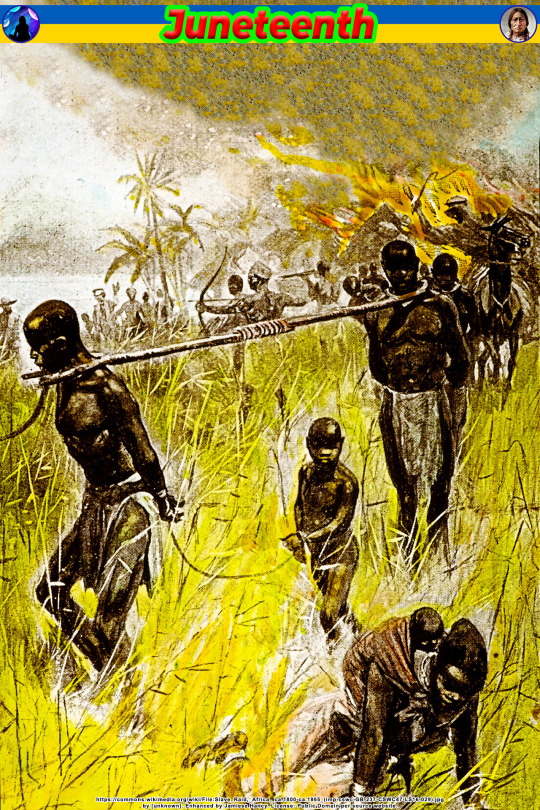
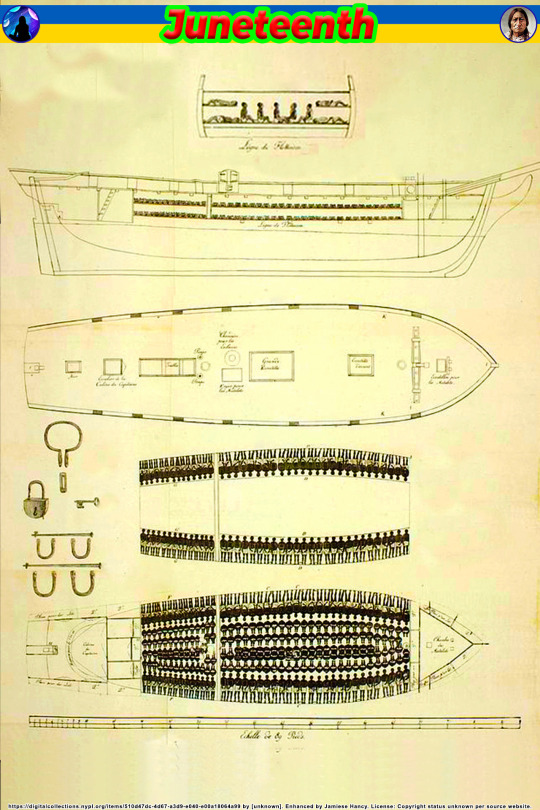

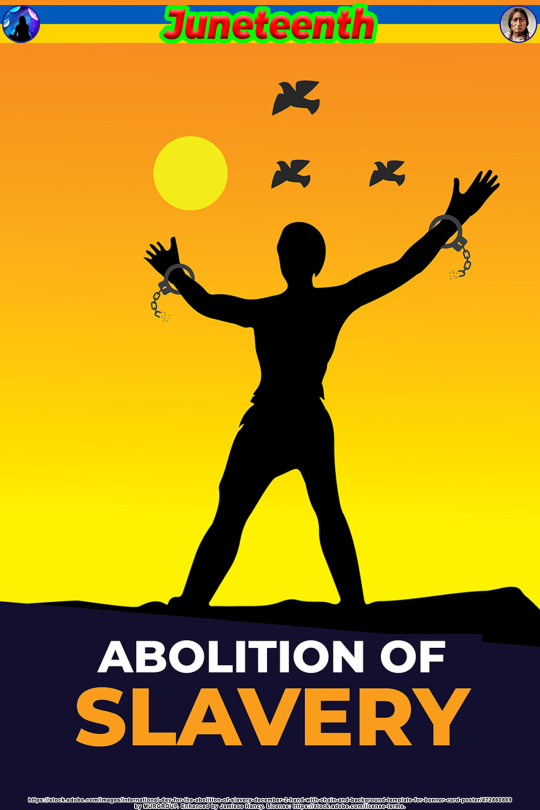
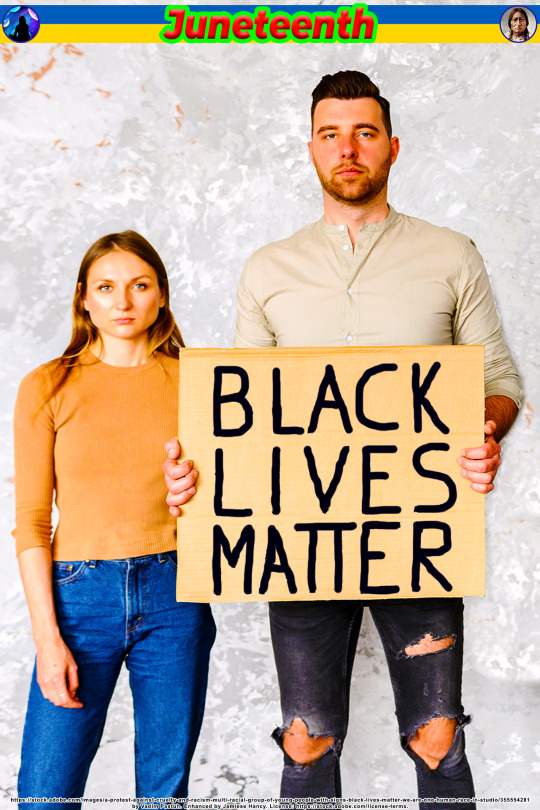
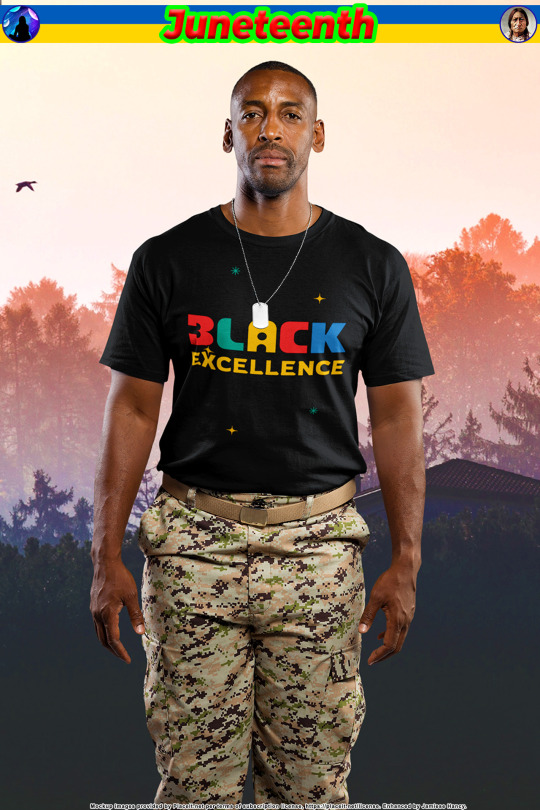
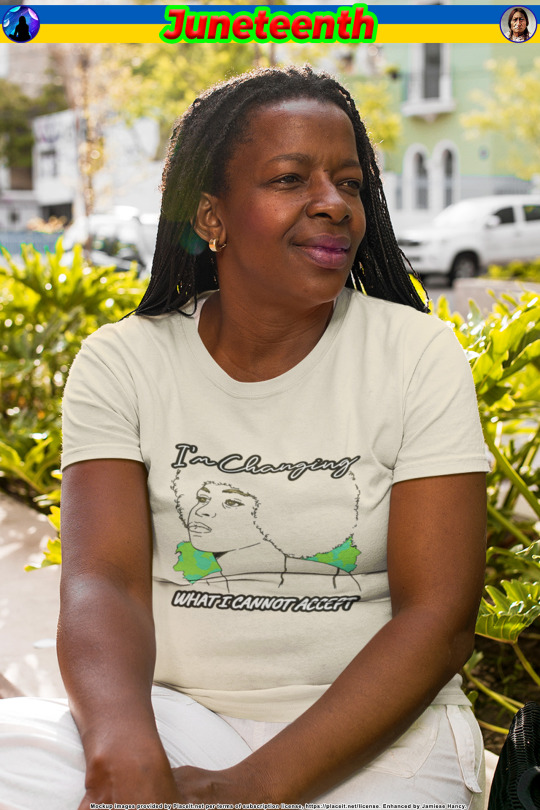
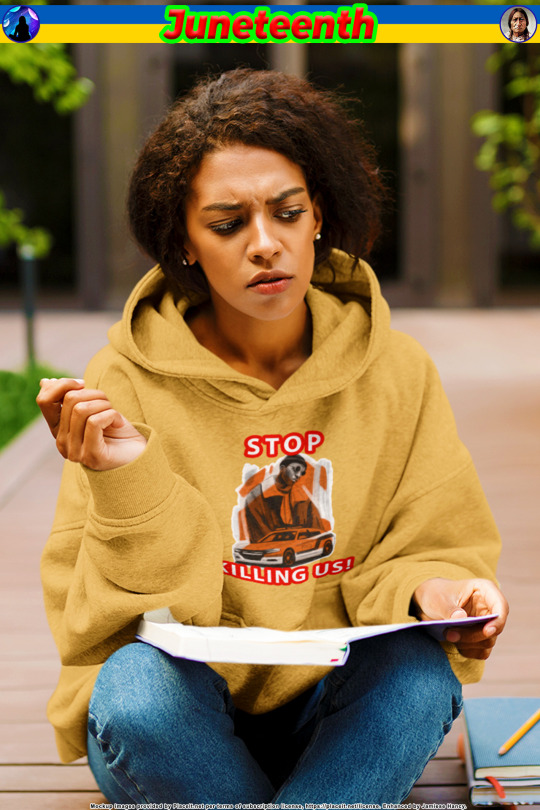
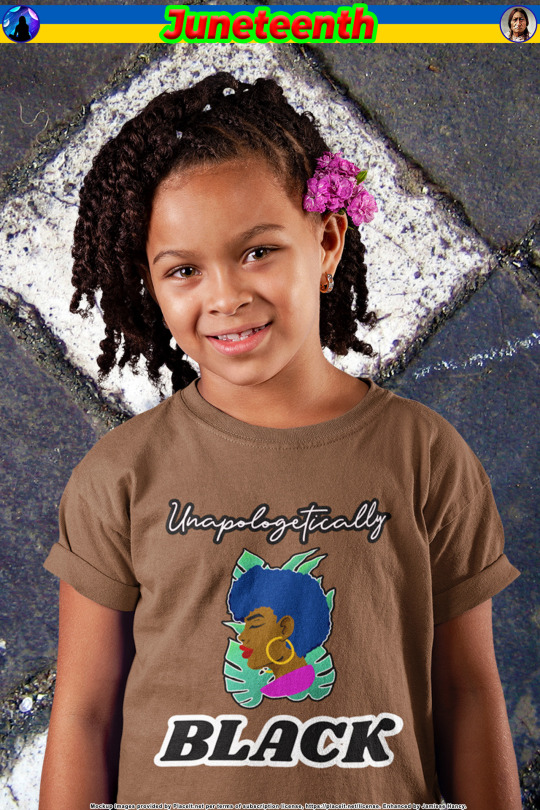
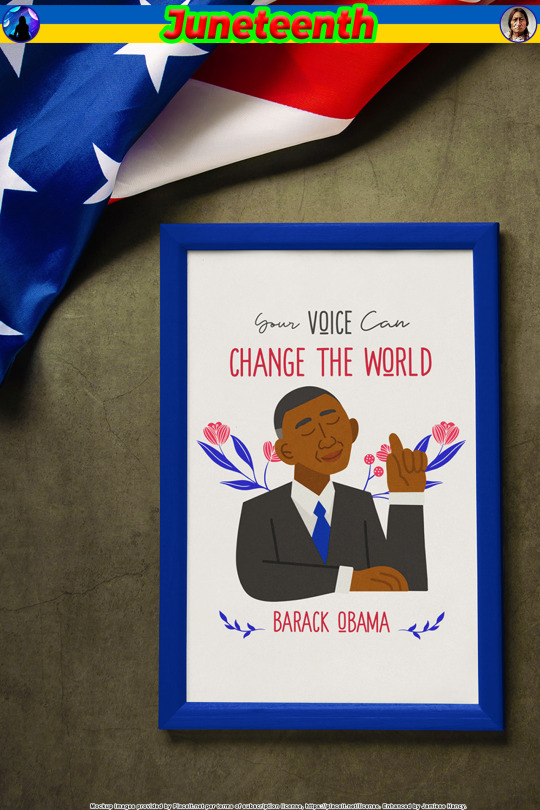
It’s Juneteenth, the End of US Slavery!
0 notes
Text



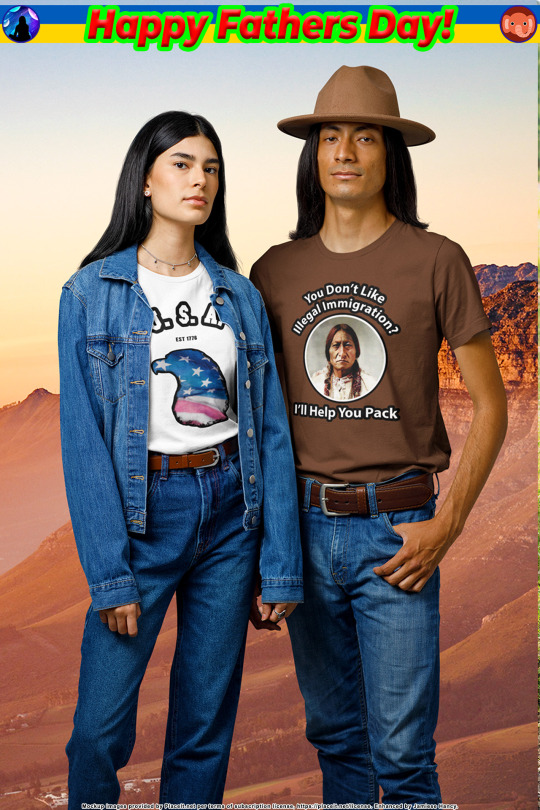

Thank You to the Best Dads in the World!
0 notes
Text
It’s June 18th. Happy Father’s Day, Dad!
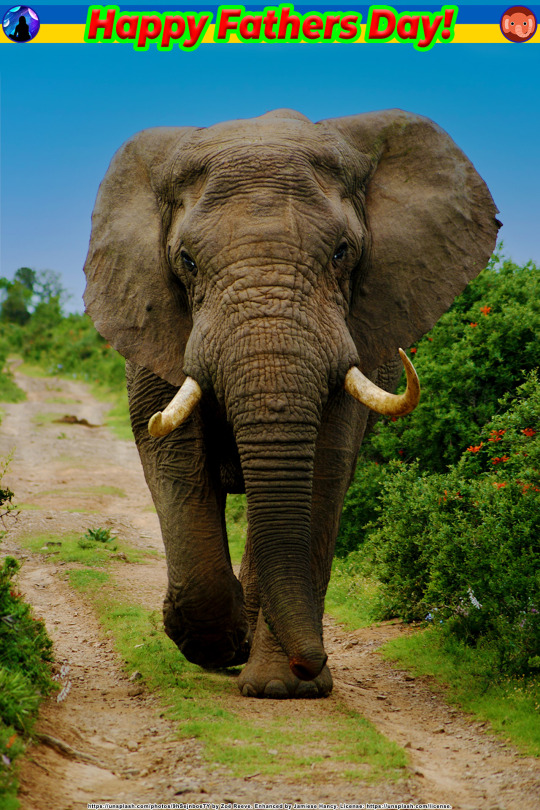
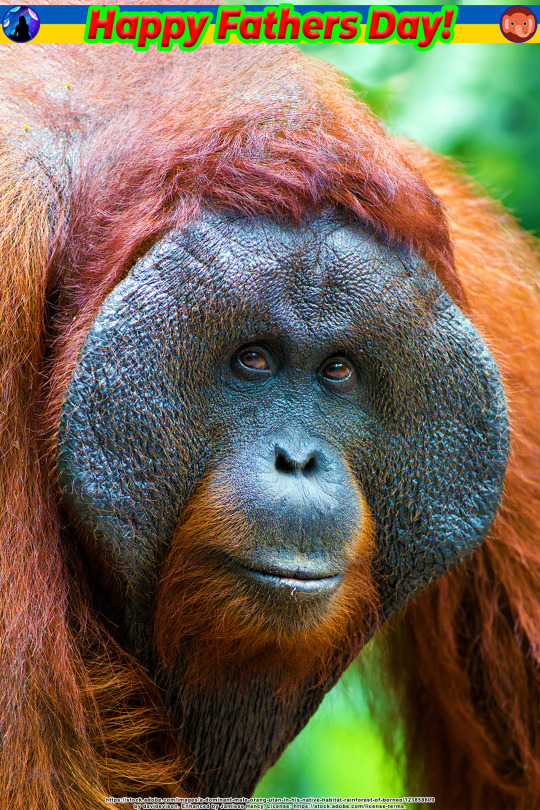
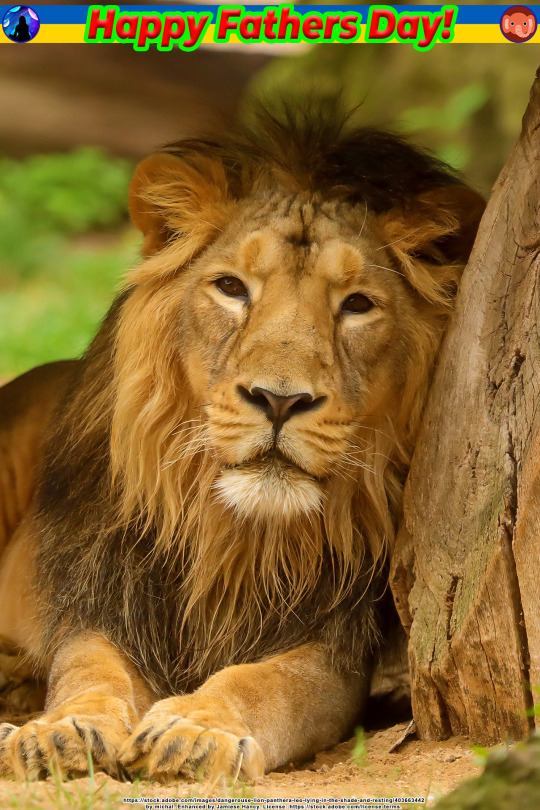
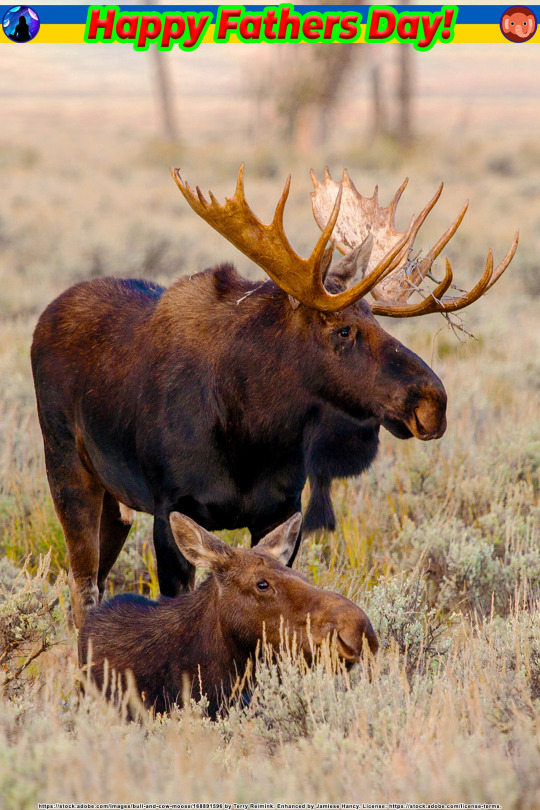
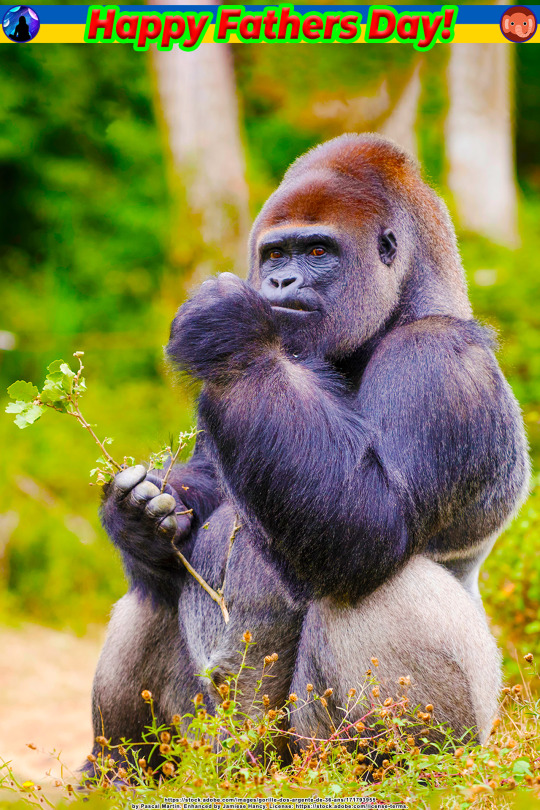
0 notes
Text


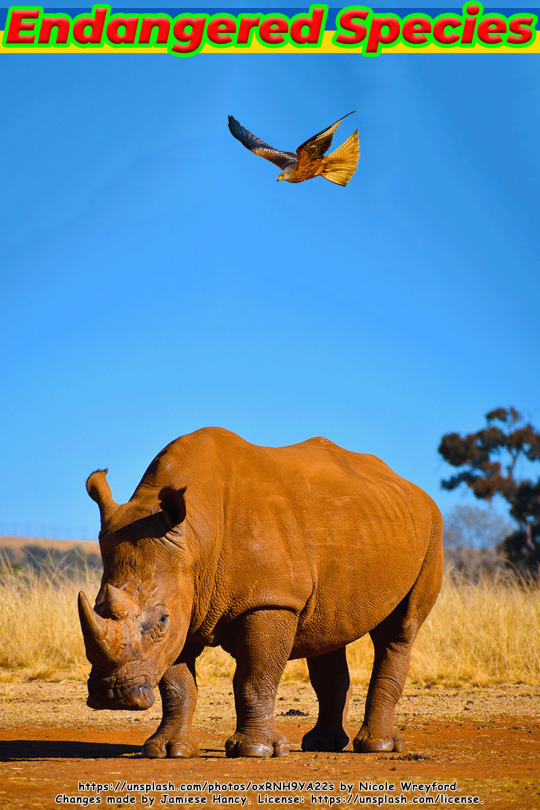







0 notes
Text
❄️ It's February 27, International Polar Bear Day!
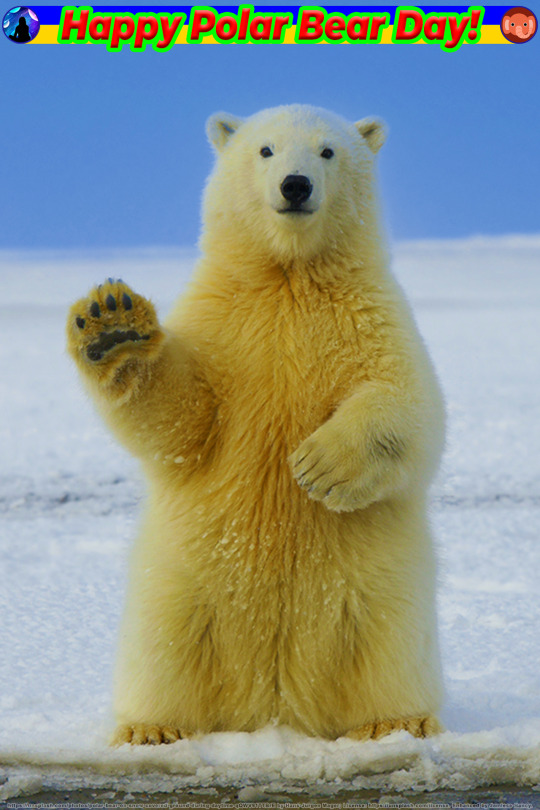
❄️ International Polar Bear Day is celebrated every year on February 27th to raise awareness of the current state of polar bear conservation. As stewards of this planet, it's our responsibility to protect all Arctic animals and preserve their delicate ecosystem for future generations.
Polar bears are one of the most iconic symbols of the Arctic, known for their strength, beauty, and adaptability to extreme cold environments. However, climate change is presenting them with numerous challenges. The melting sea ice caused by rising temperatures is shrinking their habitat and reducing their access to prey.
What immediate actions can we take to protect our polar bears and preserve what’s left of their fragile Arctic ecosystem? We can support specific polar bear conservation organizations such as Polar Bears International and the World Wildlife Fund's Arctic Program. These organizations work tirelessly to research and implement strategies for polar bear conservation.
We can also support specific climate change prevention organizations like 350.org and the Sierra Club, who are dedicated to reducing greenhouse gas emissions and mitigating the impacts of global warming on polar bears and their habitats.
Organizations such as Conservation International and the Nature Conservancy focus on conserving biodiversity worldwide, including fragile ecosystems like in the Arctic.
By supporting organizations focused on polar bear conservation, climate change prevention, and biodiversity preservation, we can make a positive impact on protecting our beloved polar bears and preserving the delicate Arctic ecosystem for generations to come. Please do what you can to help. ☮️ Peace… Jamiese of Pixoplanet
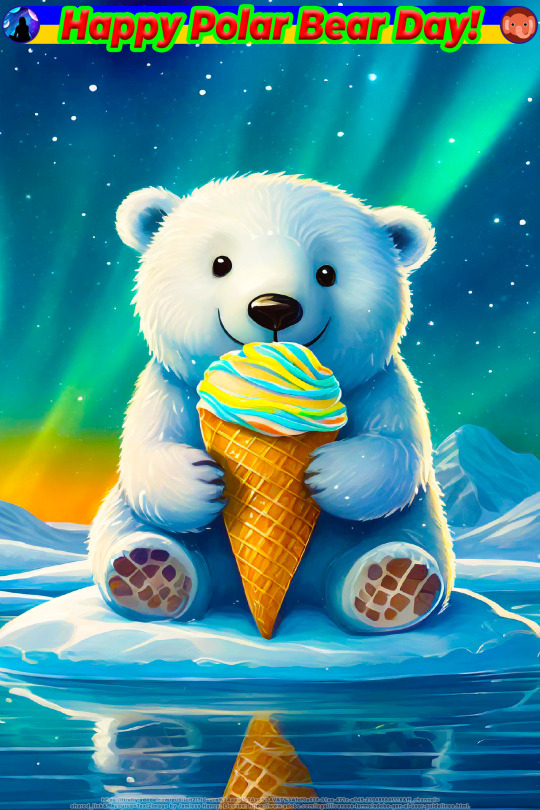
📚 Text Sources: https://justoneocean.org/ https://polarbearsinternational.org/ https://en.wikipedia.org/wiki/Polar_bear https://en.wikipedia.org/wiki/Climate_change https://www.aza.org/polar-bears-international https://www.worldwildlife.org/species/polar-bear https://www.un.org/en/chronicle/article/bare-sanctuaries https://kids.nationalgeographic.com/animals/mammals/facts/polar-bear https://unfoundation.org/blog/post/how-biodiversity-loss-harms-human-health/ https://www.nwf.org/en/Educational-Resources/Wildlife-Guide/Mammals/Polar-Bear
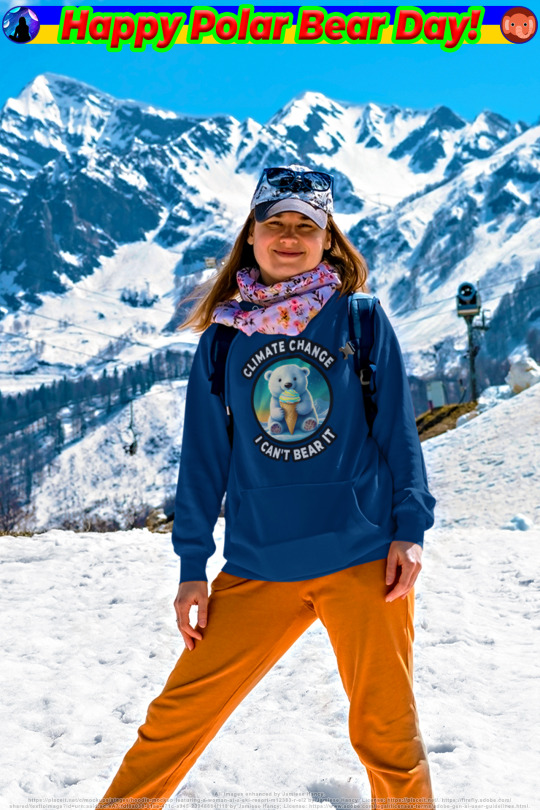
https://www.pixoplanet.com/post/international-polar-bear-day
#Inspiration#no filter#Empower#Knowledge#Classy#Progress#polar bear#international polar bear day#polar bear day#polar bears#animals#polar bear love#animal lover#polar bear cub#white bear#we support polar bears#zoo#aazk#zookeeper#climate change#biodiversity#sustainability#nature#global warming#save the planet#climate crisis#climate action#earth day#climate change is real#climate emergency
2 notes
·
View notes
Text
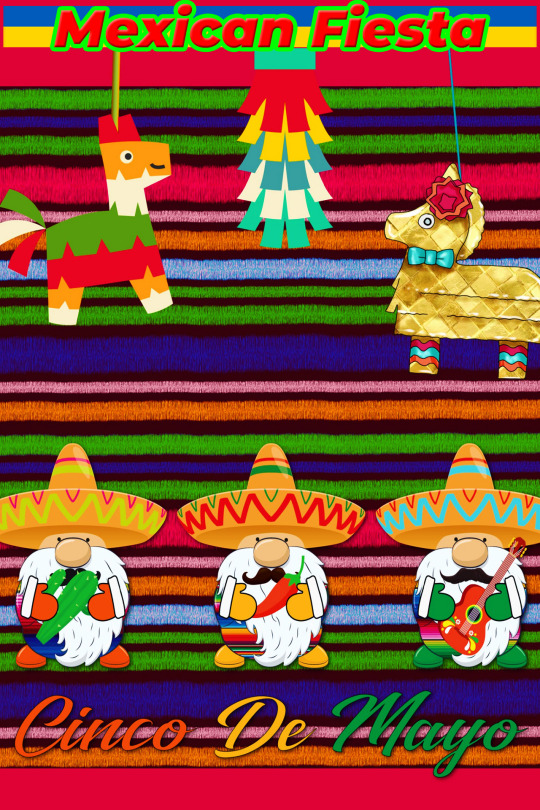
It's May 5th. ⚔️ On this day in 1862, in the Battle of Puebla, 4,000 poorly-equipped Mexican Army troops led by General Ignacio Zaragoza defeated 6,000 soldiers of the powerful Second French Empire led by General Charles de Lorencez. The victory galvanized Mexican resistance against the European invaders, who six years later grew weary of the fight and withdrew.
Puebla de Los Angeles, the site of Zaragoza’s historic victory, was renamed Puebla de Zaragoza in honor of the general. Today, Mexicans celebrate the anniversary of the battle as Cinco de Mayo. The city of Puebla marks the event with dramatic battle reenactments and exuberant fiestas which feature Mariachi bands, piñatas, Mexican food and beverages, and fun. Cinco de Mayo is also celebrated in the United States, where it has evolved into a grand celebration of Mexican-American culture. ¡Viva México! ☮️ Peace… Jamiese of Pixoplanet
#cinco de mayo#taco tuesday#tacos#tequila#margarita#mexico#mexican food#may#cinco de mayo party#foodie#fiesta#mexican#food#happy cinco de mayo#cinco de drinko#cocktails#happy hour#guacamole#celebrate#instagram#facebook#twitter#pinterest#tumblr#tiktok#youtube#redbubble#teepublic#jamiese#pixoplanet
3 notes
·
View notes
Text
🦓 Today is January 31st, International Zebra Day!
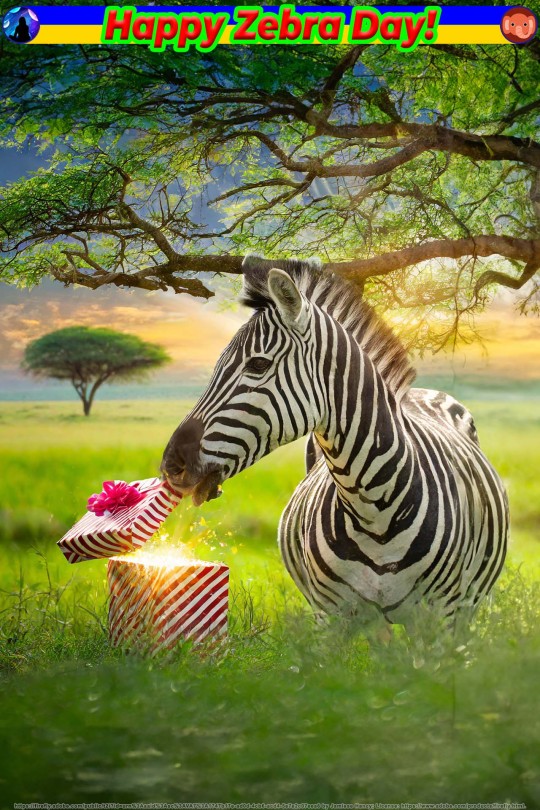
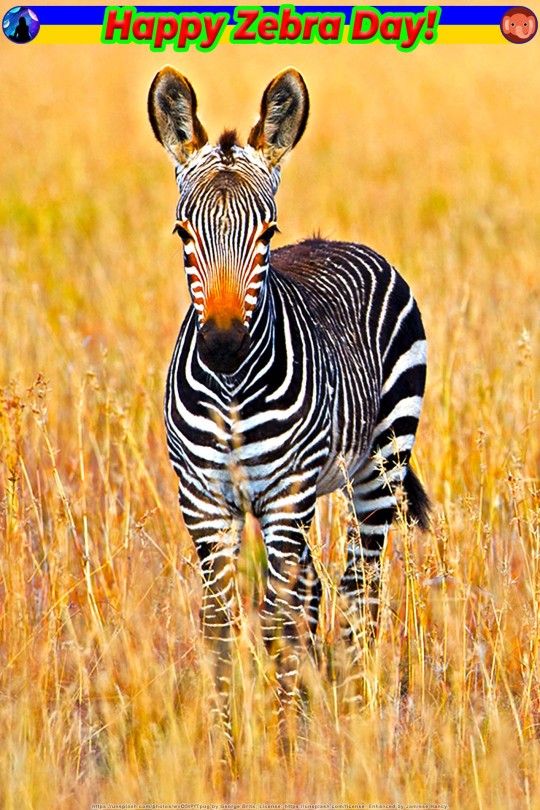

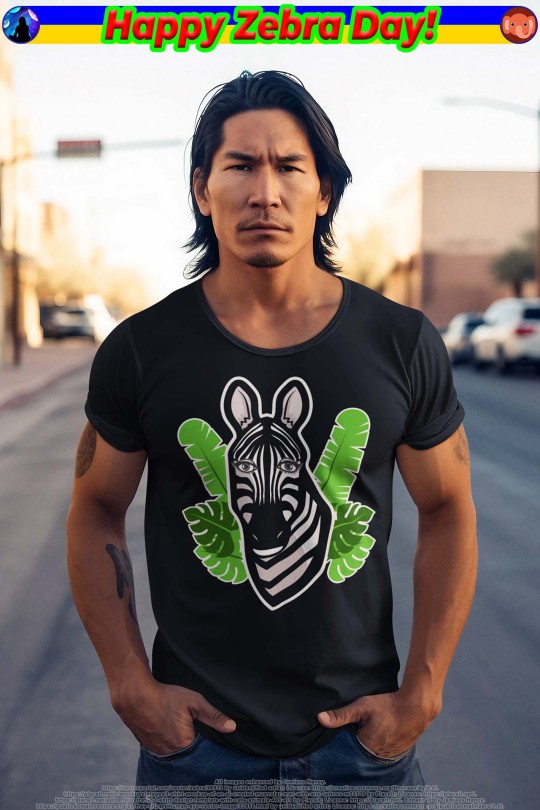

🦓 It's January 31st, International Zebra Day. There are three species of Zebra living in the world today – the Plains Zebra, Mountain Zebra, and Grevy’s Zebra – and they are all native to Africa, of course. The populations of all three Zebra species are declining. The most threatened is Grevy's Zebra, whose population has decreased 54% over the last 30 years. The Smithsonian Institution's National Zoo and Conservation Biology Institute founded International Zebra Day to help raise awareness of the Zebras' plight and help encourage efforts to preserve and protect them and their habitats.
Each Zebra species has a distinct pattern of alternating black and white stripes. And why do Zebras have stripes? Believe it or not, scientists still aren't sure, though many theories exist. Stripes might provide camouflage in tall grass, especially at night. The stripes on a herd of Zebras might also confuse predators by making it difficult to determine where one Zebra ends and another begins. Or Zebras may use their stripes to identify each other as, like with human fingerprints, Zebra stripe patterns are unique to each individual. In addition, it's been proven that the alternating black and white pattern of Zebra stripes helps control body temperature and deters biting flies from landing. It could very well be that all of these factors play a part in the natural selection of stripes for Zebras. Are Zebras black with white stripes, or white with black stripes? In its mother's womb, each Zebra starts out black, and the white coloration develops there, while still in the womb.
There've been many attempts to tame Zebras, but their unpredictable nature makes this difficult. However, in 1907, Kenyan Doctor Rosendo Ribeiro regularly rode his tame Zebra to his patients' homes. That must have been a sight! ☮️ Peace… Jamiese
📚 Sources: https://en.wikipedia.org/wiki/Zebra, https://www.greenmatters.com/p/international-zebra-day, https://www.ehlers-danlos.com/international-day-of-the-zebra/, https://www.safariltd.com/blogs/toys-that-teach/international-zebra-day, https://www.takeactionforwildlifeconservation.com/international-zebra-day.html, https://wilderness-safaris.com/blog/posts/international-zebra-day-celebrating-africa-s-dazzling-equids, https://www.getactivewithanimals.com/blog/read_197184/international-zebra-day-is-on-31-january-2022.html
https://bit.ly/pixoplanet-t
#international zebra day#zebra#wildlife#animals#wildlife photography#zebra print#zebras#africa#stripes#conservation#african wildlife#zoo photography#animal photography#nature#zebra photography#plains zebra#baby animals#zoo animals#mountain zebra#grevys zebra#photography#animals of the world#save animals#zimbabwe#nature photography#social media#we love zebra#happy zebra day#zoo#safari
0 notes
Text
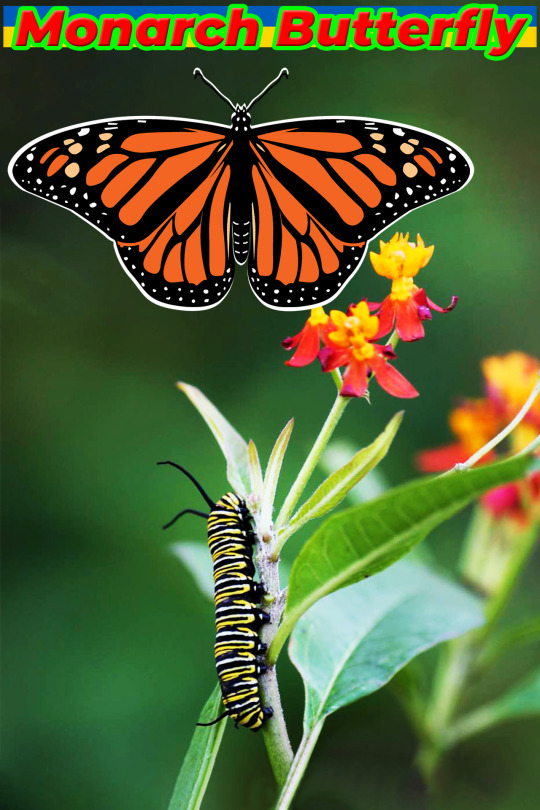
It's May 6th, 🦋 “Start Seeing Monarchs Day'' in the United States. It’s not clear who invented this special day in 2015, but it’s now being used by most promoters as a way to raise awareness of the Monarch Butterfly’s diminishing numbers and what we can do to reverse that trend.
The Monarch is one of the most familiar butterflies in North America. By early May, enough Monarchs have awakened from their winter hibernation (most of them in Mexico) that you may see some of them as they begin their migration journey across the southern US to the northern states and Canada, from where they’ll start their return leg back to their wintering grounds.
The Monarchs you see returning in the fall, though, won’t be the same ones you see in the spring. The most fascinating thing to me about this creature is the generational aspect of their annual migration. The Monarch’s lifespan is very short. Metamorphosis from egg to caterpillar to chrysalis to adult takes only about 25 days. Adults reach sexual maturity in about 4-5 days and live only another one to four weeks more. (The “super” generation that makes the return trip south and hibernates over the winter lives longer, of course.) When each adult takes flight from its chrysalis, it somehow knows where it is and in which direction it must head.
How can we help prevent the extinction of this prolific pollinator? One thing we can do is to plant milkweed. Since it’s a weed, it’ll grow anywhere, and without it, the Monarch Butterfly will cease to exist. We can also stop using herbicides and pesticides. This will improve the prospects for all wild animals, not just the Monarch, and also help keep our groundwater, rivers, lakes, and oceans clean. ☮️ Peace… Jamiese of Pixoplanet
#Start Seeing Monarchs Day#science#biology#entomology#lepidoptera#monarch butterfly#butterfly#monarch#plant milkweed#monarch caterpillar#butterfly garden#save the monarchs#butterfly art#monarch migration#raising monarchs#raising butterflies#monarch waystation#butterfly love#metamorphosis#instagram#facebook#twitter#pinterest#tumblr#tiktok#youtube#redbubble#teepublic#jamiese#pixoplanet
1 note
·
View note
Text

It's May 1st. 🏌️♀️ On this day in 1955, Babe Didrikson Zaharias, who was one of the greatest athletes in world sports history, won the Peach Blossom Ladies Professional Golf Association (LPGA) Tournament in Spartanburg, South Carolina, USA. This was the 41st LPGA title of Babe’s career, and amazingly came while she was struggling hard to fend off colon cancer. She wouldn’t set foot on a golf course for an LPGA event ever again. On September 27, 1956, Babe finally succumbed to her illness. She was only 45.
Over the course of her amateur and professional golf career, Babe won 82 tournaments, including 10 majors. And golf probably wasn't even her best sport! She dominated the track and field events at the 1932 Summer Olympics Games in Los Angeles. She earned gold medals in the 80-meter hurdles and javelin throw and a silver in the high jump. You were the best, Babe! Rest in ☮️ Peace… Jamiese of Pixoplanet
#womens sports#sports#sports photography#women in sport#women in sports#women athletes#female athlete#women inspiring women#sports photo#sport#women supporting women#women#outdoor women#women outdoors#women's lifestyle#athlete#female athletes#olympics#athletes#instagram#facebook#twitter#pinterest#tumblr#tiktok#youtube#redbubble#teepublic#jamiese#pixoplanet
0 notes
Text
appareil photo
Le 4 mai 1990, le Parlement letton a adopté une nouvelle fois une déclaration d'indépendance. Le peuple letton tente sans relâche de restaurer son indépendance depuis que Mikhaïl Gorbatchev a commencé à libéraliser son régime soviétique à la fin des années 1980. La Lettonie a finalement obtenu son indépendance totale de l’Union soviétique le 21 août 1991. Cependant, alors que le despotique Vladimir Poutine tente désormais de rétablir un empire russe, rien n’est garanti. ☮️ Paix… Jamiese de Pixoplanet
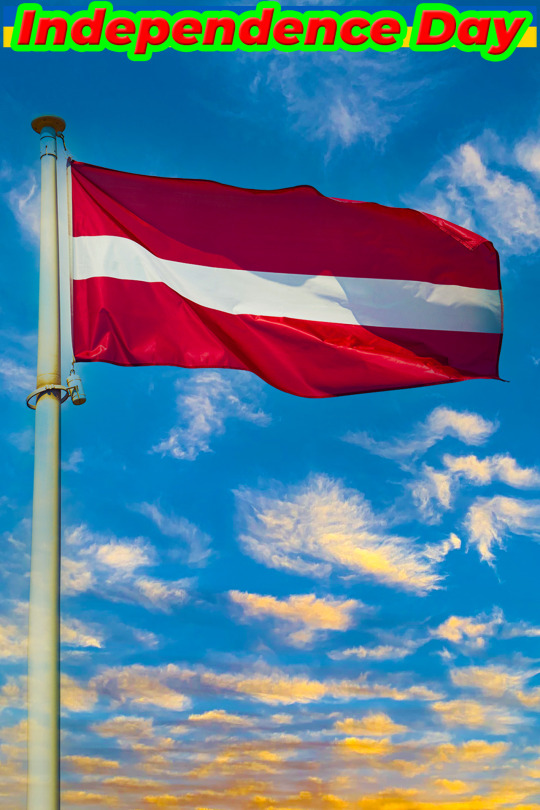
It's November 18th, 🎇 Latvia’s Independence Day, also known as Proclamation Day in the Republic of Latvia. On this day in 1918, the Latvian people defiantly declared their independence from Russia, who had forcefully moved in and occupied the country when World War I ended a week earlier (November 11th, 1918). The Latvian patriots fought the Russians for several more months before finally kicking the occupiers out, but the country still celebrates this day as its most important national holiday (analogous to the USA’s 4th of July celebration of the signing of its Declaration of Independence).
Latvia’s independence only lasted until World War II, though. In 1940, Russia, in the guise of its new empire, the Union of Soviet Socialist Republics (USSR) or Soviet Union, invaded and took control of the country. A year later Nazi Germany wrestled control from the Soviets, and held Latvia captive until 1944, when the Soviet Red Army took the country back and held it all the way through the Cold War period.
On May 4th, 1990, the Latvian Legislature once again passed a Declaration of Independence. The Latvian people had been relentlessly trying to restore their independence ever since Mikhail Gorbachev began liberalizing his Soviet regime in the late 1980s. Latvia finally attained full independence from the Soviet Union on August 21, 1991. However, with the despotic Vladimir Putin now trying to reestablish a Russian empire, nothing is guaranteed. ☮️ Peace… Jamiese of Pixoplanet
11 notes
·
View notes
Text
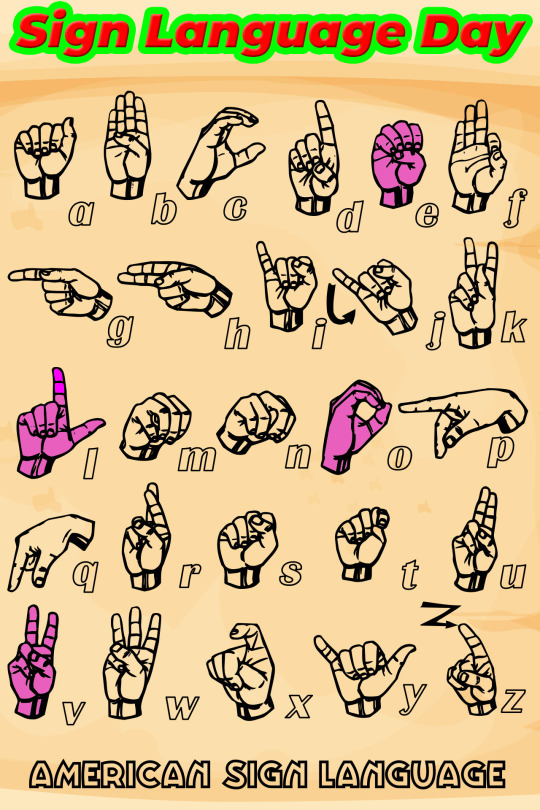
It's September 23rd, International Sign Language Day. The United Nations instituted this event in 2018 to commemorate the World Federation of the Deaf (WFD)’s founding in 1951. The objective is to raise awareness of sign languages and deaf culture and to promote the acceptance of sign languages as deaf people’s basic human rights. The event has grown into a global movement to resolve the many issues deaf people face in their everyday lives and is celebrated through various activities by respective Deaf Communities worldwide.
These activities call for participation and involvement of various stakeholders including families, peers, governmental bodies, professional sign language interpreters, Disabled People’s Organizations (DPOs), and concerned people all over the globe. All of us are invited to unite in endorsement of the need to secure and promote the human rights of deaf people. Please affirm your support for full human rights for all deaf people by signing the WFD Charter on Sign Language Rights for All at https://wfdeaf.org/charter.
Sign languages are visual languages that transmit messages. The 72 million deaf people on our planet use over 300 distinct natural sign languages, although there is also an international sign language that deaf people use when mingling, traveling, and attending international meetings. The international sign language is considered to be a pidgin form because it isn't as complex as the natural sign languages and has a limited lexicon.
Sign languages have been used by deaf people throughout history. Plato’s “Cratylus,” published in the 15th century BCE, has one of the oldest recorded accounts of sign language. Socrates also commented on the utility of sign languages: “If we didn’t have a voice or a tongue and wanted to communicate with one another, wouldn’t we try to make signals by moving our hands, heads, and the rest of our bodies?” Naturally. ☮️ Peace… Jamiese of Pixoplanet
#jamiese#pixoplanet#sign language day#idsl#iwdp#dpo#sign language#deaf awareness#sign languages#iwdeaf#deaf community#world federation of the deaf#wfd#un#united nations#sign language class#sign language for children#sign language challenge#sign language quote#sign language interpreter#sign language week#sign language love#sign language in schools#deaf culture#international week of the deaf#deaf week#international day of sign languages#deaf#deaf awareness month#sign languages day
1K notes
·
View notes
Text
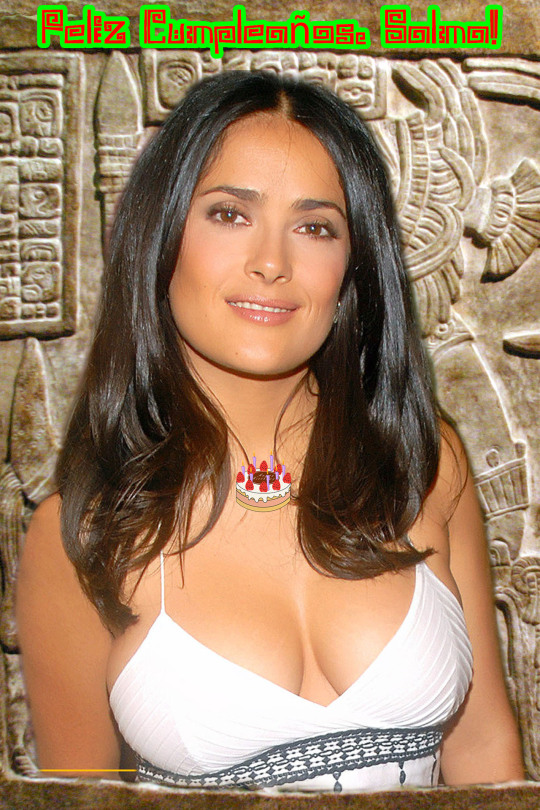
It's September 2nd. 🎂 On this day in 1966, in Coatzacoalcos, Veracruz, Mexico, Hollywood movie star Salma Valgarma Hayek Jiménez was born. Of course, we know her as Salma Hayek. "Salma" is Arabic for "peace" or "calm." Her father is of Lebanese descent and her mother is of Mexican/Spanish ancestry. At the age of 12, Hayek attended the Academy of the Sacred Heart in New Orleans, Louisiana, but was soon sent back home after getting in trouble for frequently terrorizing the nuns. What a naughty girl! After attending Mexico City's Universidad Iberoamericana, Hayek began pursuing an acting career. She played the title role in Teresa (1989), a hugely successful Mexican telenovela. Then it was on to Hollywood, where she achieved superstar status in movies such as Desperado (1995), Wild Wild West (1999) and Frida (2002), which was her pet project and earned her a Best Actress Academy Award nomination. Hayak recently announced that she'll star as Ajak, the wise and spiritual leader of the "Eternals" in the Marvel super-hero film of the same name, to be released on November 5th, 2021. While Hayek is adored worldwide as a glamorous movie star, she isn't just a pretty face – she's fluent in Arabic, Spanish, Portuguese, and English. ☮️ Salma… Jamiese of Pixoplanet
#jamiese#pixoplanet#salma#salma hayek#salma hayek pinault#francois henry penault#grown ups#yo soy betty la fea#Frida#Frida Kahlo#Teresa#Wild Wild West#Desperado#Ugly Betty#Ajak#Eternals#Mexico#Mexican#Lebanon#Lebanese#Spanish#Arabic#Portuguese#New Orleans#Louisiana#Veracruz#Birthday#Happy Birthday#1966#Coatzacoalcos
148 notes
·
View notes
Text
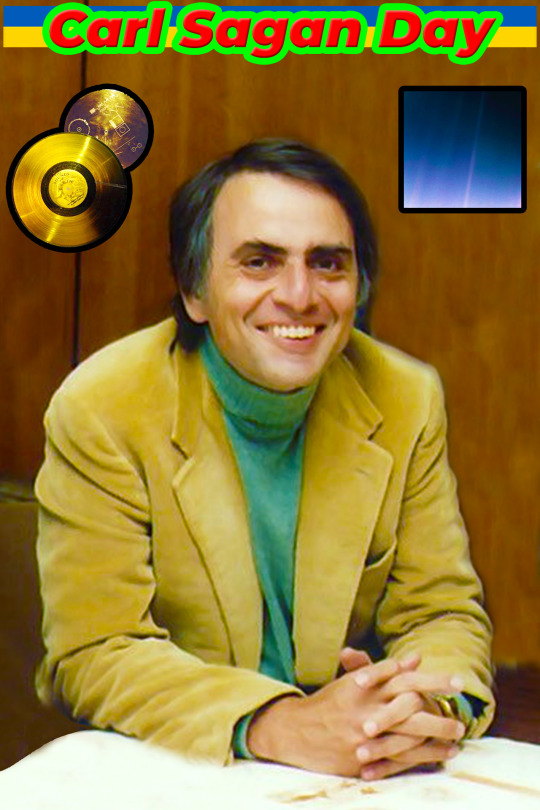
It's November 9th, 🌌 Carl Sagan Day! On this day in 1934, the brilliant Carl Edward Sagan was born in Brooklyn, New York, USA. A trip with his parents to the 1939 New York World's Fair sparked Carl's lifelong interest in science. He was fascinated by scientific exhibits that turned a flashlight beam into a crackling sound and the sound of a tuning fork into a wave on an oscilloscope. He was also enthralled by an exhibit featuring the technology that would replace radio – television. The future held wonders!
Carl never lost his childhood passion for science. After he graduated from the University of Chicago with BA, BS, MS, and PhD degrees, he had a distinguished career as a professor at first Harvard and then Cornell. But that was just the foundation of his illustrious career.
He went on to become America's pre-eminent astronomer, planetary scientist, cosmologist, astrophysicist, and – the role he is most famous for – science communicator. It seemed at the time that his crowning achievement was the 1980 blockbuster PBS documentary series "Cosmos," which he wrote, produced, narrated, and starred in.
But Carl went on to do so much more. He wrote popular books such as "Pale Blue Dot," "The Demon-Haunted World," and "Contact" (which Hollywood turned into a movie starring Jodie Foster). He helped send the first physical Earth messages into outer space – the Pioneer Plaque and the Voyager Golder Record. He convinced NASA to turn Voyager's camera back toward Earth to take a picture of us from six billion kilometers away before the space probe left the solar system. This resulted in the famous "Pale Blue Dot" image.
Carl Sagan died of pneumonia much too young at the age of 62 on December 20, 1996. The world misses you immensely, Carl. ☮️ R.I.P… Jamiese of Pixoplanet
#Jamiese#Pixoplanet#carl sagan#cosmos#science#neil de grasse tyson#astronomy#nasa#space#universe#astrophysics#spacex#stephen hawking#physics#cosmology#elon musk#black hole#albert einstein#einstein#ciencia#astronomia#quantum physics#fisica#universo#nikola tesla#richard feynman#stars#galaxy#particle physics#astrophile
98 notes
·
View notes
Text
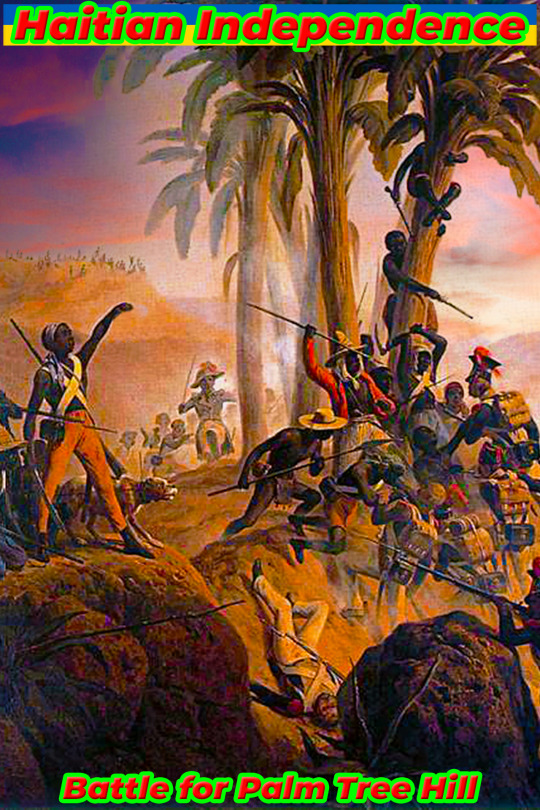
It's January 1st, ⛓️ Haitian Independence Day. France had ruled the colony of Saint-Domingue as part of its worldwide empire since 1659. However, in 1791, a group of enslaved Africans, inspired by the American and French Revolutions, began an epic struggle for freedom that culminated in victory and a declaration of independence on this day in 1804. The declaration proclaimed that the new republic would forever after be known by the same name it was known as before the Europeans had arrived – "Haiti," which means "High Land" in the Native American Taino language.
The Haitian Revolution is Haiti's defining moment. It was the largest slave uprising since Spartacus' unsuccessful revolt against the Romans in 72 BCE. Haiti's victory came as a total surprise and shock to the rest of the world and inspired countless other slave revolts throughout the Western Hemisphere. It also paved the way for the termination of the transatlantic slave trade. This victory was also the final nail in the coffin of Napoleon Bonaparte’s ambitions for a New World French Empire. He’d sold the Louisiana Territory to the United States the previous year in part to pay for the defeat of the revolt in Saint-Domingue. That was not to be. Haiti became the first independent state in Latin America and the first in the New World to be led by a person of color.
The victory over France put an end to Haiti's military fight for freedom, but not its political fight. The US and most European nations, including France, didn't immediately recognize Haiti's independence. France didn't officially do so until 1825. The US didn't do so until 1862. That doesn’t matter, though. All that matters is Haiti. The Haitians recognized their own independence on this day in 1804 and have continued to do so every day since. ☮️ Peace… Jamiese of Pixoplanet
#Jamiese#Pixoplanet#haitian independence day#haiti#haitian food#haitian#kompa#zouk#haitian kompa#haitian breakfast#griot festival#griot fest#haitian foods#griot#haitian revolution#mackandal#ayiti#haitian music#haitian pride#haitian businesses#ayiti cherie#haiti tourism#the haitian revolution#instagram#facebook#twitter#pinterest#tumblr#tiktok#youtube
37 notes
·
View notes